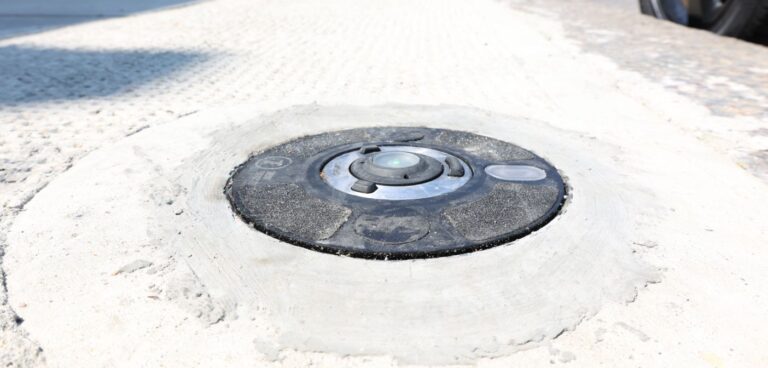Five Trojan Energy EV chargepoints have been installed on a street in the London Borough of Brent for a small group of trial participants to carry out real-world testing of the prototype system.
The full trial of 150 charging points across Brent and Camden will then go live later in the year.
The chargepoints, installed in Mortimer Road, represent a critical moment in the three-year Subsurface Technology for Electric Pathways (STEP) project funded by the UK Office for Zero Emission Vehicles (OZEV) and delivered by Innovate UK, which has seen the charging points developed from concept, through manufacturing and now deployment.
Start-up company Trojan Energy has designed the ‘flat-and-flush’ charging system for those without access to off-street parking. Some 15 charge points are installed in parallel from one electricity network connection, with power distributed across the chargers.
London’s electricity network operator UK Power Networks, a partner in the STEP project, has connected the chargers to the energy system. The network will ensure the new chargers can help manage the additional load presented as the uptake in EVs continues and more people charge at peak times.
Ian Mackenzie, CEO of Trojan Energy commented: “Trojan Energy is delighted to reach this important milestone in the STEP project, as it represents the first implementation of our flat, flush and future-proof charging technology.
“We’d like to thank Innovate UK for their support, all the project partners for their expertise and help, and OZEV for their funding. We can’t wait to see the first driver reactions and hear their feedback so we can generate learnings for the wider project rollouts across Brent and Camden.”
The full trial will see 10 sets of 15 charge points deployed on six streets in Brent and four streets in Camden. Over 140 EV drivers have already signed up to test the technology in the full trial running from September this year to March 2022. A further 75 have signed up as ‘prospective’ EV drivers, who intend to adopt an EV in the near future.
Energy consultancy Element Energy is leading the project and has designed a survey alongside academic partner Institute of Transport Studies at the University of Leeds to evaluate the success of the project.
Results from the pre-trial survey suggest that 50% of EV driver participants find their current charging situation inconvenient and are in need of a better solution, with over 70% stating that the availability of local charging points was an important factor for their EV purchase.
As part of the trial, renewable electricity supplier Octopus Energy is offering the opportunity for customers to merge their car charging costs with their home energy bill through Octopus’ EV roaming service, the Electric Juice Network. This will create a seamless system for paying for all the electricity they use in one place, as if charging at home.
Birmingham City Council is the final consortium member, which will act as an observer for the project – providing advice on how the technology could be implemented outside the capital.





